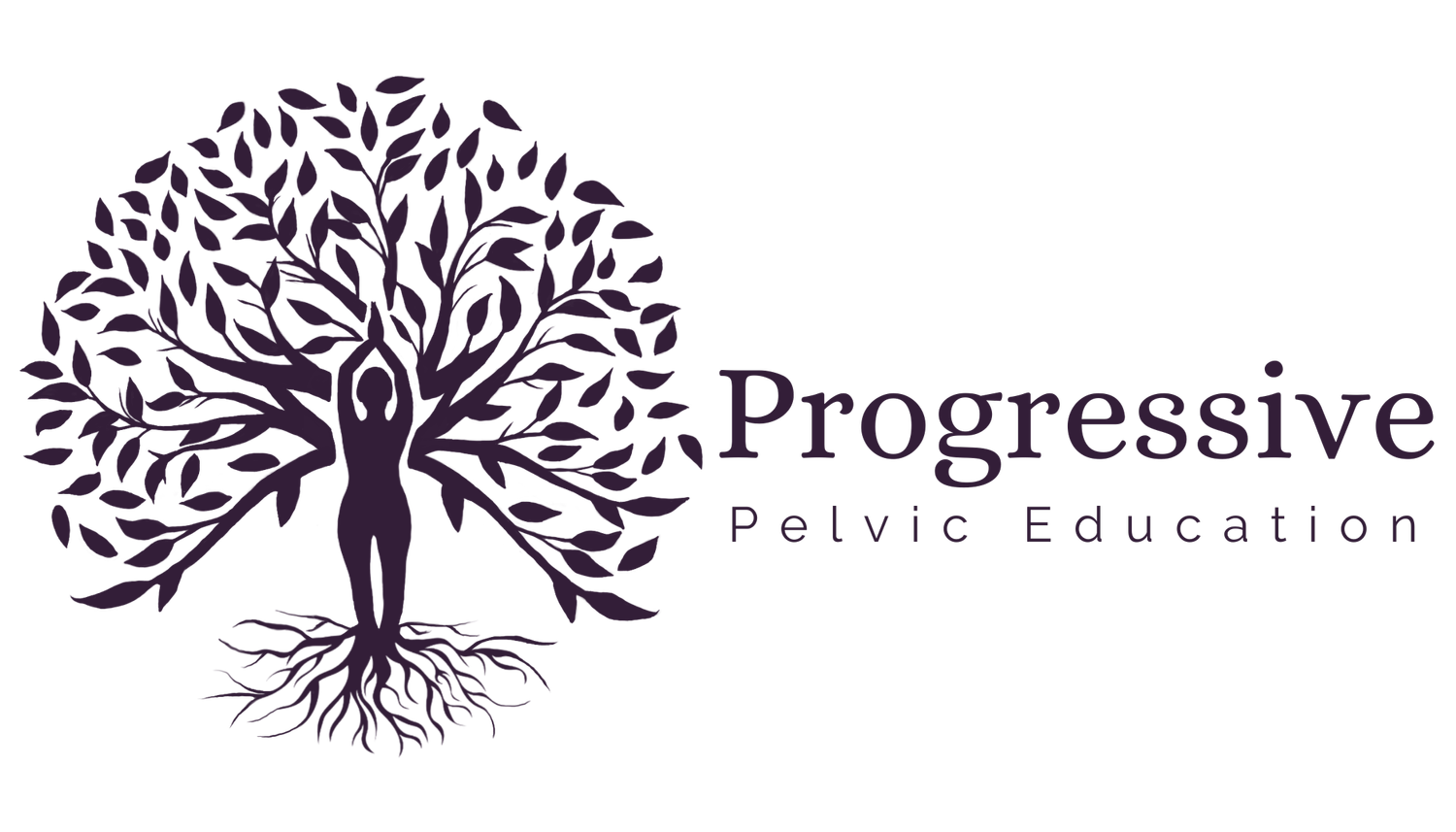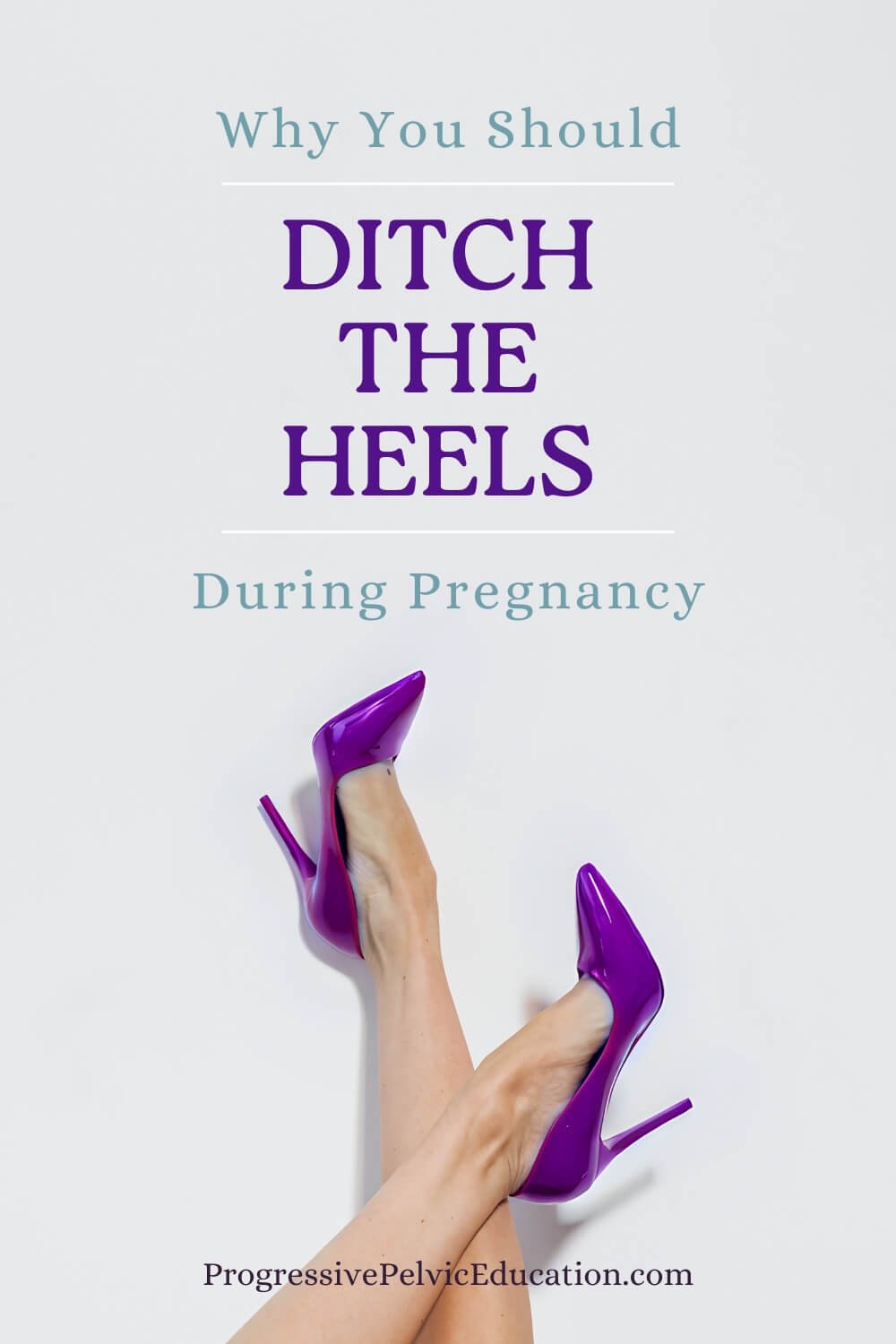Ditch These During Pregnancy
This may be an unpopular opinion, but we strongly encourage every pregnant person to ditch their heels during pregnancy. Keep an open mind as you read on to learn why and what we suggest doing instead - your future self will thank you!
Gender reveals. Baby showers. Babymoons. Brunches with girlfriends and family. And right now it’s the holidays so there are work parties and year-end family get-togethers. We get it - there are so many times you’d like to wear cute heels with your cute baby bump!
You’ve been waiting for this day. And you see it all the time in the media - people wearing heels no matter what trimester they’re in.
But the truth is, wearing heels during pregnancy can affect your pelvic alignment and put stress on your joints. This can result in increased pain for you during pregnancy, possibly increased difficulty during labor, and decreased balance (which can contribute to falls and potential injury to your baby)!
Let’s discuss each of these concerns a little more….
Wearing heels can increase pain during pregnancy
When you put heels on your pelvis tips forward. So in order for you to keep standing upright (and not walk around leaning forward!) your low back compensates by increasing its arch (or forward curve, also known as lordosis).
Your center of gravity already moves forward during pregnancy as your belly grows, but an increase in heel height adds even more strain to your lower back muscles, ligaments, and fascia. This can increase your chance of having low back pain, sacral pain (at the bottom of your spine), hip pain, and pelvic girdle pain (which can be felt in various areas around your pelvis and groin) during pregnancy - it’s not fun!
Wearing heels also increases the strain on the joints in your ankles, knees, and back. The joints all over your body are responding to the increase in hormones that increase the looseness (or laxity) of your ligaments and connective tissue. Some people are sensitive to this even early on in pregnancy, long before their baby bump shows! As you progress through pregnancy your blood volume and body weight increase and that adds even more strain on your joints - so no one needs the extra pressure and discomfort from heels in the equation.
Remember - pain is NOT normal during pregnancy. Don’t let anyone tell you otherwise! Pain is a sign that something in your body needs help adjusting to the changes of pregnancy and is an invitation for you to give your body some attention.
Wearing heels during pregnancy can make labor more difficult
Changing your pelvic alignment can also cause increased pelvic floor muscle activity (in other words - your pelvic floor muscles have to work more). Your pelvic floor muscles are active whenever you’re up and moving, but when you wear heels they have to work even harder to keep you stable and upright, much like your calf muscles do. And just like you can get tightness and more cramps in your calves when your ankles are held in that high-heel position (also called plantarflexion) you can get increased tightness and pain in your pelvic floor muscles.
This is the opposite of what we want for your pelvic floor in preparation for labor and childbirth! Your pelvic floor muscles need to be able to relax and be flexible and extensible for a smooth birth experience. Wearing heels causes your pelvic floor muscles to be cramped, overworked, and tight, and this can potentially lead to a more challenging labor and childbirth experience.
Side note - in my clinical practice as a pelvic physical therapist I find that many women have pelvic floor muscle tightness to begin with, so wearing heels just makes their problems worse!
Wearing heels during pregnancy can increase your chance of falling
And finally, another consideration is that wearing heels during pregnancy can increase your chance of falling. Research has shown that even 1 ½ inch heels can worsen your dynamic postural control and functional mobility (and this study was done on non-pregnant women, who aren’t dealing with all the structural and postural changes from pregnancy already!).
The negative effect on balance was even greater/worse in women who weren’t used to wearing heels. This doesn’t mean that you’re clear to wear heels in pregnancy if you’re used to wearing them, but it does suggest that it may be even riskier if you’re not used to wearing heels before pregnancy.
So what can you do if you’re pregnant but you’re used to wearing heels?
Ditch ALL heels during pregnancy. We did, and eventually we never went back to them postpartum. The shoe brands we’re loving right now (for us and our kids!) are: Vivobarefoot, Xero, Earthrunners, BeLenka, Splay, and Saguaro. And there are so many more options! The two places we’ve trusted to find new shoe companies are Katy Bowman’s shoe list and Anya’s Reviews.
Decrease the height of your heels during pregnancy. If you have to wear heels for work (we feel for you!) then see if you can at least switch to a kitten heel, or a heel less than 1 ½ inches tall.
Stretch your calves. This will help combat the tightening and shortening of your calf muscles that can occur with wearing heels. It’ll also help with calf cramps, which can be common during pregnancy, especially in the later months.
Take your heels off as much as you can. If you have to wear heels, try to avoid walking for long distances in them, and if you’re wearing them for a meal or meeting, slip them off and let your ankles move while you’re sitting. You can pump your ankles up and down, move your feet (from the ankles down) side to side, and try making circles with your feet clockwise and counter-clockwise.
Work on your pelvic mobility and pelvic floor muscles. It’s helpful to do this anyway, but it’s especially important to counteract the effects of wearing heels. We teach you how to assess your own pelvic floor muscles for tightness and how to help them if you find any restrictions there, as well as how to improve your pelvic mobility, in our self-paced, online program, Progressive Pregnancy. You can join at any time during your pregnancy, or even before you conceive if you want to get a headstart!
We know change can be tough, but even small steps can make a big difference! We hope you’ll consider some of our tips for how to ditch your heels during pregnancy, and why you would want to!

